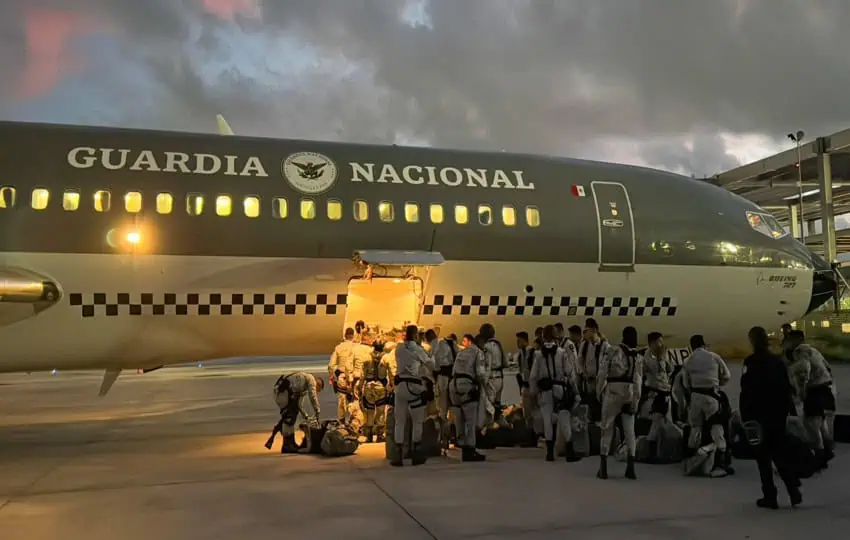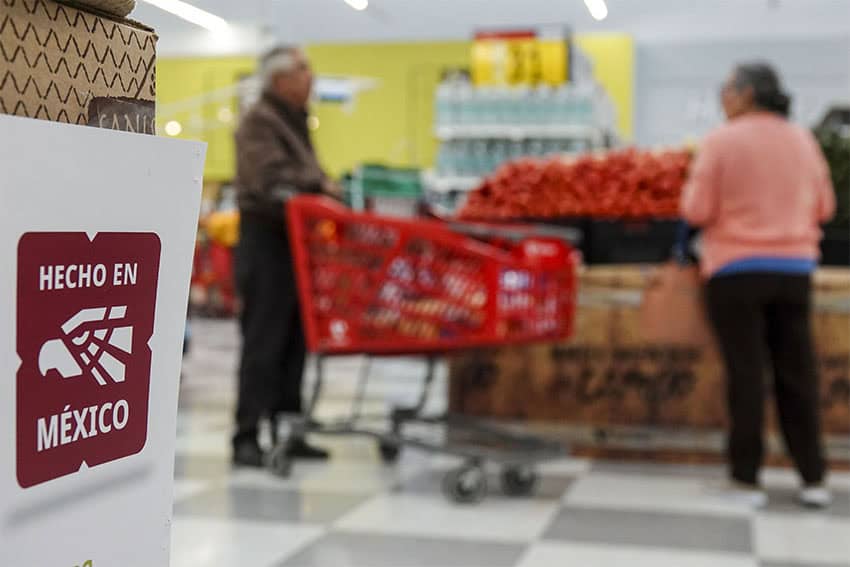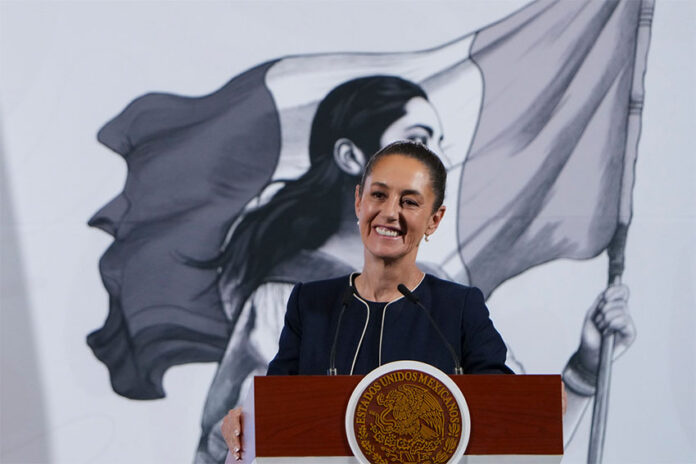The United States’ on-again, off-again tariffs were once again a major topic of discussion at President Claudia Sheinbaum’s Friday morning press conference.
Sheinbaum’s final press conference of the week came a day after United States President Donald Trump announced he had “agreed that Mexico will not be required to pay Tariffs on anything that falls under the USMCA Agreement” until April 2.
That announcement came two days after the United States imposed blanket 25% tariffs on imports from Mexico, and shortly after a call between Sheinbaum and Trump.
No secret pact with Trump
A reporter asked Sheinbaum whether Trump asked for “something else” during their call on Thursday.
“What do you mean something else,” retorted the president.
“I don’t know, more security,” said the reporter, probing to see whether Sheinbaum had made any additional commitment a month after she agreed to deploy 10,000 National Guard troops to Mexico’s northern border as part of a deal with Trump to stave off the implementation of tariffs in early February.

“I made the commitment to not lie, not steal and not betray the people,” Sheinbaum said.
“We don’t lie, there is no negotiation in the dark with the United States. No,” she said.
Sheinbaum reiterated that she spoke about Mexico’s security results in her call with Trump.
She stressed that her government is taking action against organized crime “not only so that fentanyl doesn’t reach the United States, but also because we have a responsibility with the people of Mexico to achieve peace and security.”
Sheinbaum said she “simply” told Trump that Mexico is “going to continue working” to combat crime and continue “collaborating” with the United States on security issues “within the framework of the general [security] agreement reached at a meeting in Washington last week.”
Mexican officials including Foreign Affairs Minister Juan Ramón de la Fuente and Security Minister Omar García Harfuch discussed security issues with Secretary of State Marco Rubio, Secretary of Defense Pete Hegseth and other U.S. officials at a meeting in the U.S. capital on Feb. 27.
In a social media post on Thursday announcing his decision to suspend tariffs on imports from Mexico, Trump said that he and Sheinbaum “are working hard, together, on the Border, both in terms of stopping Illegal Aliens from entering the United States and, likewise, stopping Fentanyl.”

“Thank you to President Sheinbaum for your hard work and cooperation,” he added.
Mexican peso largely withstood tariff pressure
Sheinbaum highlighted that the Mexican peso didn’t suffer a major depreciation despite the United States’ imposition of 25% tariffs on imports from Mexico on Tuesday.
“The economy of Mexico is strong and it was reflected in the peso. … When they announced 25% tariffs, yes there was a small devaluation, but it was in centavos, it didn’t even get to 21 [to the US dollar],” she said.
According to Reuters, the peso did appreciate to 21 to the greenback on Tuesday, but Bloomberg recorded the currency’s weakest position at 20.98 to the dollar.
The Bank of Mexico’s USD:MXN rate at the close of trading on Friday was 20.27. Based on central bank data the peso appreciated 1.5% this week.
Sheinbaum attributed the peso’s performance after U.S. tariffs were implemented to “confidence in the Mexican economy, the work the Bank of Mexico does … [and] international reserves.”
Tariff suspension ‘opens a very big opportunity for investment’
Sheinbaum said that Trump’s announcement that there won’t be tariffs on most imports from Mexico (at least until early April) “obviously opens a very big opportunity for investment in our country once again.”
Investment in Mexico “has a lot to do with the internal market and exporting,” she said.
“Obviously if you’re going to invest to export, [Trump] saying that ‘there won’t be tariffs and there is an agreement [between Mexico and the United States]’ opens up a lot of possibilities,” Sheinbaum said.

“Now, remember that we want to strongly favor investment not just for exporting, but also to boost the internal market and reduce imports from other parts of the world, particularly Asia,” she said.
Earlier in Sheinbaum’s Friday press conference, the Mexico country manager of Latin American e-commerce giant Mercado Libre announced the company will invest US $3.4 billion in Mexico this year, while the president of Sempra Infrastructure confirmed that that firm is developing two new projects in Baja California at a cost of US $3.5 billion.
Mexico received almost US $37 billion in foreign direct investment last year, according to preliminary data from the federal Economy Ministry.
By Mexico News Daily chief staff writer Peter Davies ([email protected])
